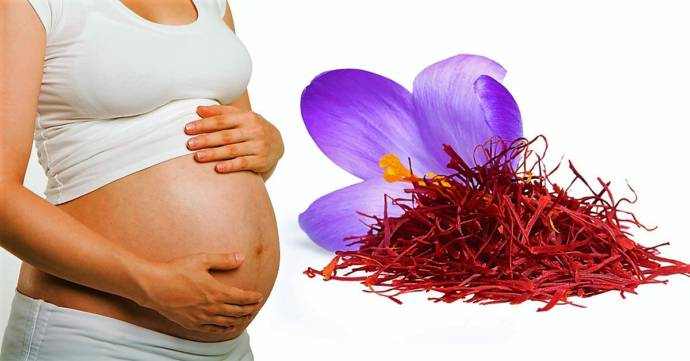saffron properties
saffron advantages during pregnancy
Consumption of saffron during pregnancy is not only safe but also has several medicinal properties. Taking this spice during pregnancy helps to get rid of stress, pain, mood swings, and discomfort of pregnancy. But if saffron is consumed in large quantities, it also has adverse effects, which we explained earlier. When adding saffron to your diet during pregnancy, pay attention to the following points:
- Use only two to three strands of saffron (one-third teaspoon) at a time.
- Buy saffron that you buy for pregnant women only from reputable stores to be sure that there is no risk of artificial coloring or impurities in it.
You can buy organic and Iranian saffron from our site at ***.
Benefits of saffron for pregnant women
Saffron is essential during pregnancy due to its medicinal nature and is highly recommended. Its main advantage is that it helps digest food by forming a protective coating in the digestive tract. The benefits of saffron during pregnancy include the following:
Reduce mood swings
Pregnancy causes many hormonal changes in your body and this has a profound effect on your emotions. In a moment, you may engage in moments of happiness with shocking or emotional moments. For such a time, saffron can help you. Because it acts as an antidepressant and speeds up blood flow to your brain. Saffron also produces the hormone serotonin, which improves your mood.
Protection against heart disease
Saffron can protect you against heart disease. During pregnancy, women consume more than the required amount of fatty foods due to increased appetite, which can have detrimental effects on their cardiovascular system. The antioxidants, Quercetin, and potassium in saffron reduce the body’s triglyceride and cholesterol levels.
.Saffron provides the iron your body needs
During pregnancy, it is strongly recommended that you eat foods rich in iron because your body needs iron to be healthy. Saffron has a rich source of iron and is useful in increasing hemoglobin levels and creating red blood cells.
Treats respiratory diseases
Saffron has anti-inflammatory properties that help to breathe better than the nose. It also reduces swelling and inflammation in the lungs. As a result, you can breathe easily. Saffron can also help pregnant women with asthma by removing any obstructions in the lungs and airways.
Reduces hair loss
Hormonal fluctuations during pregnancy often increase hair loss. Extensive treatments for this problem are common, but the antioxidants in saffron can also play an important role in preventing and treating hair loss in pregnancy by nourishing the hair.
Help you sleep better
As the pregnancy progresses and approaches the last months, it becomes more difficult for the mother to sleep. To be. During this time, you can consume saffron in tea or milk. Saffron contains sedative properties that increase sleep hours and calm you down.
Treats respiratory diseases
Saffron has anti-inflammatory properties that help to breathe better than the nose. It also reduces swelling and inflammation in the lungs. As a result, you can breathe easily. Saffron can also help pregnant women with asthma by removing any obstructions in the lungs and airways.
Reduces hair loss
Hormonal fluctuations during pregnancy often increase hair loss. Extensive treatments for this problem are common, but the antioxidants in saffron can also play an important role in preventing and treating hair loss in pregnancy by nourishing the hair.
Help you sleep better
As the pregnancy progresses and approaches the last months, it becomes more difficult for the mother to sleep. To be. During this time, you can consume saffron in tea or milk. Saffron contains sedative properties that increase sleep hours and calm you down.
Treats skin problems
Saffron consumption has helped many women in treating their skin problems. Problems such as pimples and acne that occur during pregnancy. Saffron purifies the blood and is therefore an effective solution to skin problems caused by impurities in the blood.
Help treat respiratory problems during pregnancy
Your immune system weakens a little during pregnancy. Some may get infections and allergies. Saffron helps reduce cough, asthma, allergies, and nasal congestion. In addition, the use of this spice reduces fever.
It moves the fetus
Saffron can also increase your body temperature. This, in turn, causes the fetus to move more inside your uterus.
Prevent skin pain and wounds
Sometimes increasing the concentration of hormones during pregnancy causes pain and sores in different areas of the skin. For relief, you can gently massage saffron on your skin like a mask. To help reduce pain and skin sensitivities.
Help with eye problems
Consumption of saffron during pregnancy often helps to improve vision, especially in people who have cataracts, its use is recommended.
Promotes kidney health
The potassium in saffron helps maintain kidney health because it creates a good electrolyte balance. Saffron is an ideal medicine for pregnant women because it is rich in folic acid, niacin, thiamine, riboflavin, and vitamins A and C.
Strengthen bones and teeth
The baby needs a lot of calcium to grow, which the mother’s body provides. Loss of calcium reduces bone density and makes bones brittle and weak. Teeth may also decay. In such cases, saffron consumption can be very beneficial for bone and tooth health.
How to use saffron during pregnancy?
So saffron can be used during pregnancy and there is no problem, but to understand the permissible consumption, be sure to contact your doctor. Pregnant mothers should be well informed about how to use saffron during pregnancy. Saffron is mainly consumed in several forms:
- Brewed saffron
- Saffron with milk
- Saffron with water
Conclusion:
Consumption of saffron during pregnancy can have positive effects, including:
Controlling mood swings, lowering blood pressure, aiding digestion, fetal movement, relieving pain, relieving anemia, preventing heart disease, improving sleep quality, relieving gum pain, anti-allergy, hair growth aid, anti-acne, and most importantly, reduce morning sickness.

